“I saw his buttocks without the trousers in my head and then I shut my eyes and tried to imagine something that wasn’t a doctor’s naked buttocks.”
I had gone to Rush Green Hospital in Onitsha that morning for a medical check up, because my menstrual cycle lasted for two weeks every month. I hated the smell of hospitals – it made me feel nauseous. But this hospital was different. I was born here; I had my first bath and cried for the first time here.
Standing at the entrance, I stared at the blue and white building with colorful flowers. Green leaves scattered all over the place, carelessly, as if they had stubbornly taken a stand against unity.
I observed a cleaner attempt to sweep the leaf-littered compound. The wind blew the leaves apart as soon as she swept them together but she didn’t give up. The cleaner’s enthusiasm amused me and I imagined that one of the doctors might have been watching from the window, hence her occasional stare at that one window.
I watched a car speed into the compound and come to a sharp halt, like one would see in foreign action movies. A man jumped out of the car before the door opened properly and rushed to help a screaming lady out of the back seat. She looked like a mad woman. She had no shoes on, her hair had begun to form rat tails for lack of care and her face was so oily, it glistened in the sun. She could barely stand and she held the lower part of her belly, hurling curses at the man in Igbo.
‘Emeka, may God punish you for doing this to me o! God punish you for me! It was you who enjoyed it more; it is I who am suffering now. Emeka may God burn you with fire.’
The nurses rushed out with a wheelchair and she sat down, still cursing while they wheeled her into the building. They giggled at the woman’s rants and one said, ‘It was the both of you that enjoyed it. When you see your child now, all the noise will end.’
The man tried to touch her shoulder but she slapped his hand.
‘Emeka, emetuzina m aka! Stop touching me! Your touch is exactly what I’m suffering for now, leave me alone!’
She held her waist and moaned as they disappeared into the building.
I wondered if my mother felt the same way while she was pregnant with me. I walked into the hospital thinking about how painful childbirth must be.
I sat down at the reception with some women as we awaited our turn. I watched them chat and familiarize and feed their babies and fan themselves, and I tried to tell their stories. I judged them based on what they looked like.
One lady wore a short blue dress and no makeup on. She was lovely to look at, and she was fanning herself with Hint magazine and constantly looking around as though she were hiding from someone inside the hospital. She crossed her legs, in the same way telephone wires coiled, so that I felt pain by just looking at her legs. To this lady, I gave malaria.
The middle aged woman who was sweating like one who had run a marathon; headscarf perched at the top of her head like a hawker’s tray, baby sweating and crying too. Her eyes were red and her baby’s eyes were a mixture of red, brown and yellow, like harmattan sand. They had to be there for something serious, tuberculosis perhaps, because her baby coughed a lot. A chronic skin disease, maybe – the woman’s arms looked dry and scaly, dotted with rashes. Or malnutrition; the colour of their eyes definitely said malnutrition. But I decided on HIV. A weak immune system could cause all of those illnesses and more.
While I busied myself with the imagined diagnoses, a nurse walked up to me. The nurse was fat and her white dress was a tad too tight, creating a demarcation between her upper and lower belly. She must have been slimmer when the uniform was given her. And she had on those ‘nurse shoes.’ I wonder why nurses liked those cream-coloured pointy shoes. They looked like tired football shoes and this nurse, the sides of hers were bent so that they gave her bow legs.
‘Is there a specific doctor you’re here to see?’
‘Yes, Dr Osoka.’
My mother had told me he was the doctor who had seen her through antenatal and who brought me out of her vagina. She said the word ‘vagina’ because she decided I was too old for that story every mother told, of how God threw down children from the sky and the doctors helped distribute them. She advised me to see him, since he knew me even before I was born.
‘Okay, he is on seat. I will let you know once he’s ready to see you.’
I dished out several more unsolicited diagnoses and then the doctor was ready for me.
As I made my way up the staircase, I looked at the picture-filled wall on my right. It reminded me of a museum or an art gallery, even though I had never been to either. I had created ideas of what they looked like from pictures and stories and movies. On the wall hung photos of different babies. I wondered if mine was ever there, and what picture of me was used. I wondered also, about a reunion of everyone born in Rush Green and of all the mothers whom Doctor Osoka had delivered babies for.
I walked down the hallway and heard a baby’s cry. Poor innocent things, I thought, they’d be born without their consent and then have two weeks of menstrual flow they didn’t ask for.
I got to the door that had ‘Doctor Osoka’ written on it; I had arrived at my semi-creator’s office. I knocked, opened the door and walked in. The office was bright; it smelled of Dettol and something minty; chewing gum maybe. There was an air conditioner right above the doctor’s head. I was distracted by the opening and closing of the vents. Then I saw the photo of a half-sliced avocado hanging right next to the air conditioner; the hollow that once housed the seed reminded me of a vagina. Everything now reminded me of a vagina. The doctor had his head buried in a book.
I stood there staring at the middle of his head, the tiny part that was bald, that looked like he had received several knocks there in the past.
On his wall were drawings of pregnant women with labels of their body parts. One of the drawings had a write-up that read: Antenatal is essential for the well-being of both mother and child. Of course antenatal was essential, anything to have his hands up women’s vaginas.
Nkolika, my classmate, whose mother was a nurse, had told me that antenatal was simply to check the size of the baby’s head. I didn’t see the use of it, especially since nothing could be done even if the baby’s head was massive. My granny had nine healthy children and no antenatal. I looked at the doctor’s hands and tried to guess how many babies those hands had delivered. Certainly over one million, I decided.
‘Uzoije, how are you? Have a seat please,’ the doctor said, finally looking up from his book.
He looked at me from above his glasses. Why on earth do bespectacled people like to ignore the help of their frames and peep over them instead? I thought.
‘Your dad called to say you were coming in this morning. I haven’t seen you since you were a baby,’ he said, smiling and exposing a set of pure white teeth. He had a dimple on just one cheek; I wanted to put her finger in it.
‘Yes sir,’ I responded.
He gave me the ‘go on’ look, but I couldn’t look him in the eyes.
‘My period lasts for two weeks and I think it’s abnormal.’
‘When did this start?’
‘When I was thirteen.’
‘And you are how old now?’
‘Fifteen.’
‘Ok,’ he began, ‘is there something else you’ve noticed apart from how long it lasts? Does it feel unusually painful? Do you have a really heavy flow?’
I looked at the movement of his lips, his hand gestures and thought he was handsome. His lips looked like he moisturized them a lot.
‘Yes sir, it is usually painful and I have a really heavy flow every time.’
Doctor Osoka stood up and walked from behind his desk. He was a short man. He walked towards a small bed at the far end of his office. I turned to look at him and thought his buttocks were a little too big for his size.
I hadn’t noticed the bed before, which I assumed must be the antenatal bed, where women from different parts of the city lay to have the doctor slide his hands into their vaginas. The image of this act stuck uncomfortably in my head.
‘If you would just lie down here for me, Uzoije, I’ll have you checked’
I looked at him in shock as he gestured to the bed with his hand. Did every female now need antenatal? Thoughts raced through my head like cars speeding on a highway. The cars hit each other, but they sped regardless. I took off my shoes and lay on my back while he opened and closed drawers, searching for something I knew that I had no idea about.
‘I’ll be right back,’ he said as he shut the door behind him.
I sat up on the bed and looked around the room again. Below the air conditioner hung frames that looked like certificates and awards. I tried to make out what was written in them, but they were too far away. I wondered what they were for. Certificate for best hands for antenatal maybe? He walked back in with a small white bottle.
‘So, some women are out there waiting for me. I usually don’t attend to other people except those potbellies today but I made an exception when I heard one of my kids was coming. We’ll do this as quickly as possible okay?’
‘Okay.’
‘Pull your skirt down for me please. You look dazed; it’s not a painful process. We’re simply going to take a look at your womb and other organs,’ he said.
He applied something really cold, way down below my navel, then he began to massage me with something that felt like the ball on a roll-on bottle. It felt good; I didn’t want it to stop.
‘And that’s your womb right there on the screen,’ he said, pointing at the tiny old-model computer by the side of the bed.
The picture didn’t look like anything; it was just black and white pieces of stuff that looked like they were breathing in and out.
‘Okay, let’s see. I don’t see anything wrong here; your womb and other organs look perfect.’ He took a white cloth and wiped up the miraculous milky substance that made my womb visible on the computer.
‘Sit up,’ he said, as he strolled back to his desk. I got out of bed, put on my shoes and followed him.
‘Uzoije, you’re all grown up now. You were born when again? 1989 or 1990?’
‘1990.’
‘Ha! I am an old man,’ he said, laughing heartily.
I looked at him as he laughed and thought, You don’t feel old, liar. You’re proud of yourself; you’ve achieved so much. You think the evidence is sitting right here across your desk.
HORMONAL IMBALANCE. That was what I had. That was what Doctor Osoka said I had and he said it was not a big problem. I would simply take some pills and it would all go away. But even if it didn’t go away, I didn’t mind coming back to see the doctor, to look at the movement of his lips as he spoke. I wished he could give me another appointment for a follow up or a check up or anything at all. I wondered though if ‘hormonal imbalance’ was written all over me like the lady in the blue dress whom I diagnosed with malaria or the middle aged woman with HIV. I left the doctor’s office with a list of prescriptions. The nurse downstairs was going to give them to me.
On my way down the stairs, I saw Emeka. I recognized him because he had that steady apologetic facial expression. He was crying. Two females walked up to him, held his shoulders and said, ‘Ebezina, stop crying, and be strong for your family.’
‘What family? What family?’ Emeka asked.
He placed both hands on his head in defeat, as tears streamed freely down his face.
I am so sorry. I feel like I know you now. I watched her slap your hand off her shoulder and accuse you of enjoying the sex and not suffering with her. I feel a connection I cannot explain. I shared that private, intimate moment with you. She’s dead. Dead. But why get pregnant if it’s this painful? Didn’t she go for antenatal? I hear sex is painful, too. So what is the point of it all? She’s dead, I am sorry. I was born here, you know. I must have been lucky because my mother didn’t die, and my father didn’t cry and I’m here. I wish I could do something to help. I wish I had superpowers. I wish the opposite of death happened and that you were smiling and kissing the little one and thanking your angry wife. I wish you teased her for slapping you earlier. But she’s dead and I’m so sorry you’re sad. I’m sorry your baby’s photo will not be hung on that wall.
Emeka’s facial expression changed from apologetic to guilty. The helplessness was stark.
His shoulders moved up and down as he cried. He sat down on the staircase, questioning God and quoting bible verses that promised him life and not death. I wanted to console him, to say ndo out loud and not in my head, but I didn’t. I walked past him, to the nurse who would give me the prescribed drugs, thankful for my hormonal imbalance.
**************
Image in post by Monique Prater via Flickr.
About the Author:
 Uzoamaka Doris Aniunoh is an Igbo writer from the eastern part of Nigeria. She is inspired by real life experiences. You can find her being troublesome on Facebook, or telling her truths on her blog, dorisaniunoh.blogspot.com.
Uzoamaka Doris Aniunoh is an Igbo writer from the eastern part of Nigeria. She is inspired by real life experiences. You can find her being troublesome on Facebook, or telling her truths on her blog, dorisaniunoh.blogspot.com.


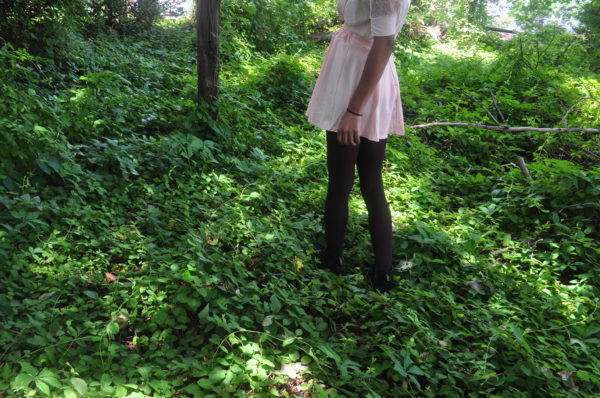
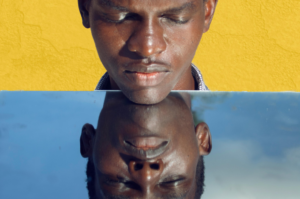
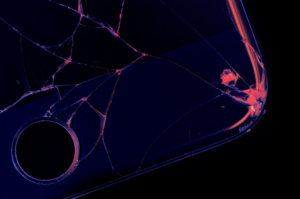


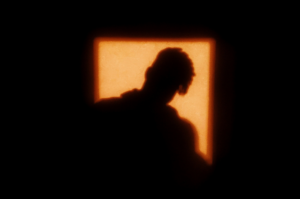
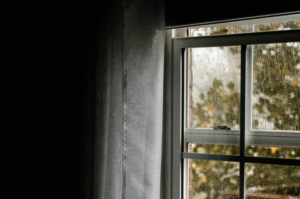

Chioma September 21, 2020 14:58
Nice one Doris